5 homes that harmoniously unite heritage and contemporary design styles
Written by
28 April 2022
•
3 min read
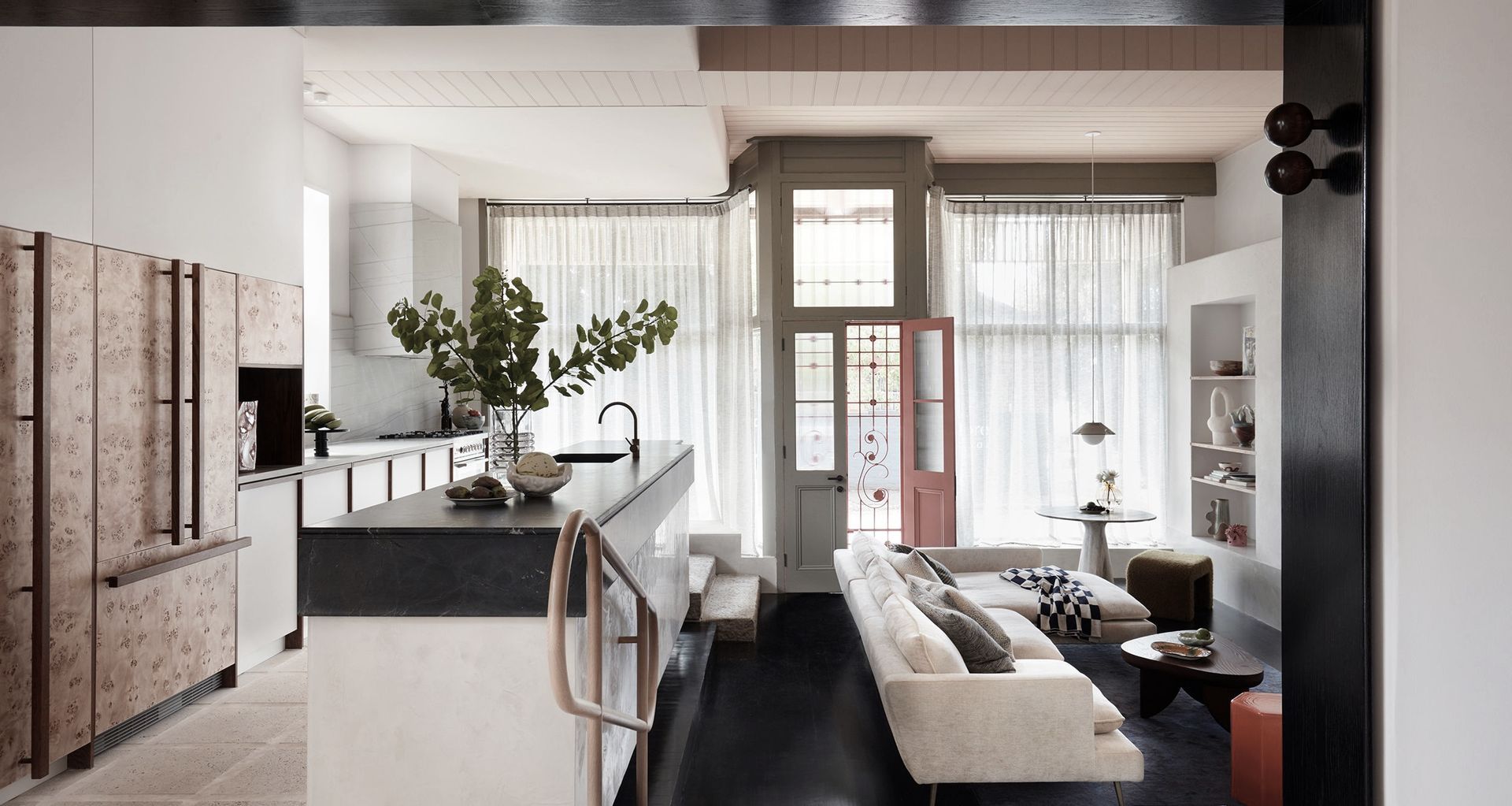
There’s a certain perennial allure to heritage homes. Intricate designs and period details contribute to a distinct character that differentiates heritage houses from properties built today. However, heritage homes are often in a state of disrepair and in need of restoration. In the same vein, they’re also a product of their time, with many unsuited to the requirements of modern living.
The best historic house restorations strike the right balance between old and new, retaining the inherent charm of the home while revamping the interiors to suit its inhabitants. From respectful restorations to complete interior overhauls, these projects seamlessly blend history and modernity without compromising on comfort or style.


Mosman House by To The Mil
A heritage-listed Federation home, Mosman House receives a modern extension to accommodate a growing family. The heritage facade of the home is retained and juxtaposed against the charred timber extension, contributing to a sense of visual interest. Inside, the original home places an emphasis on quality craftsmanship, with pared-back black timber floorboards, timber-framed windows, and high skirtings complemented by ornate cornices. Meanwhile, the new extension — connected to the original house by a courtyard — leans into a clean, contemporary aesthetic with marble floors, bagged brickwork, gyprock ceilings, and aluminium doors and windows.
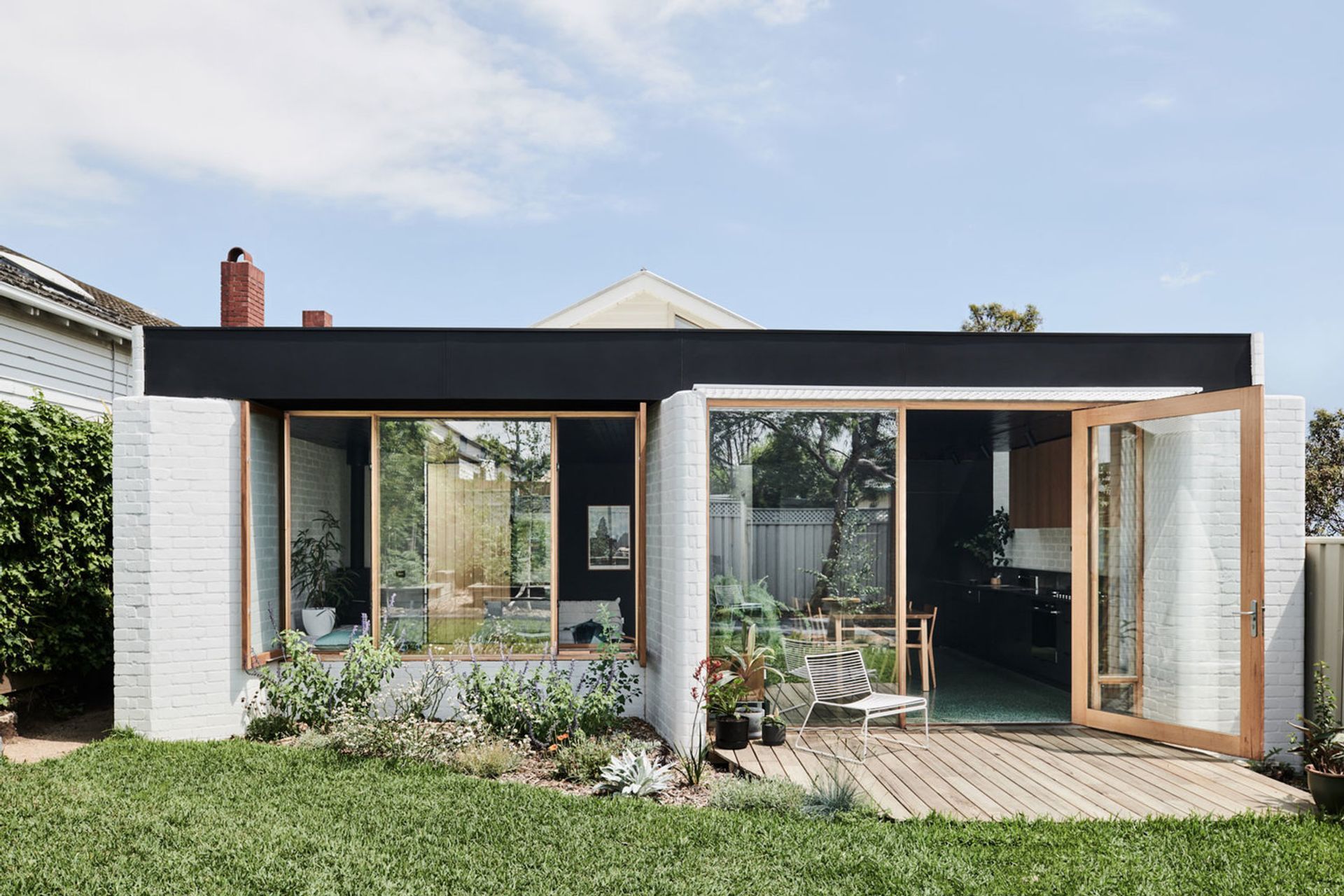
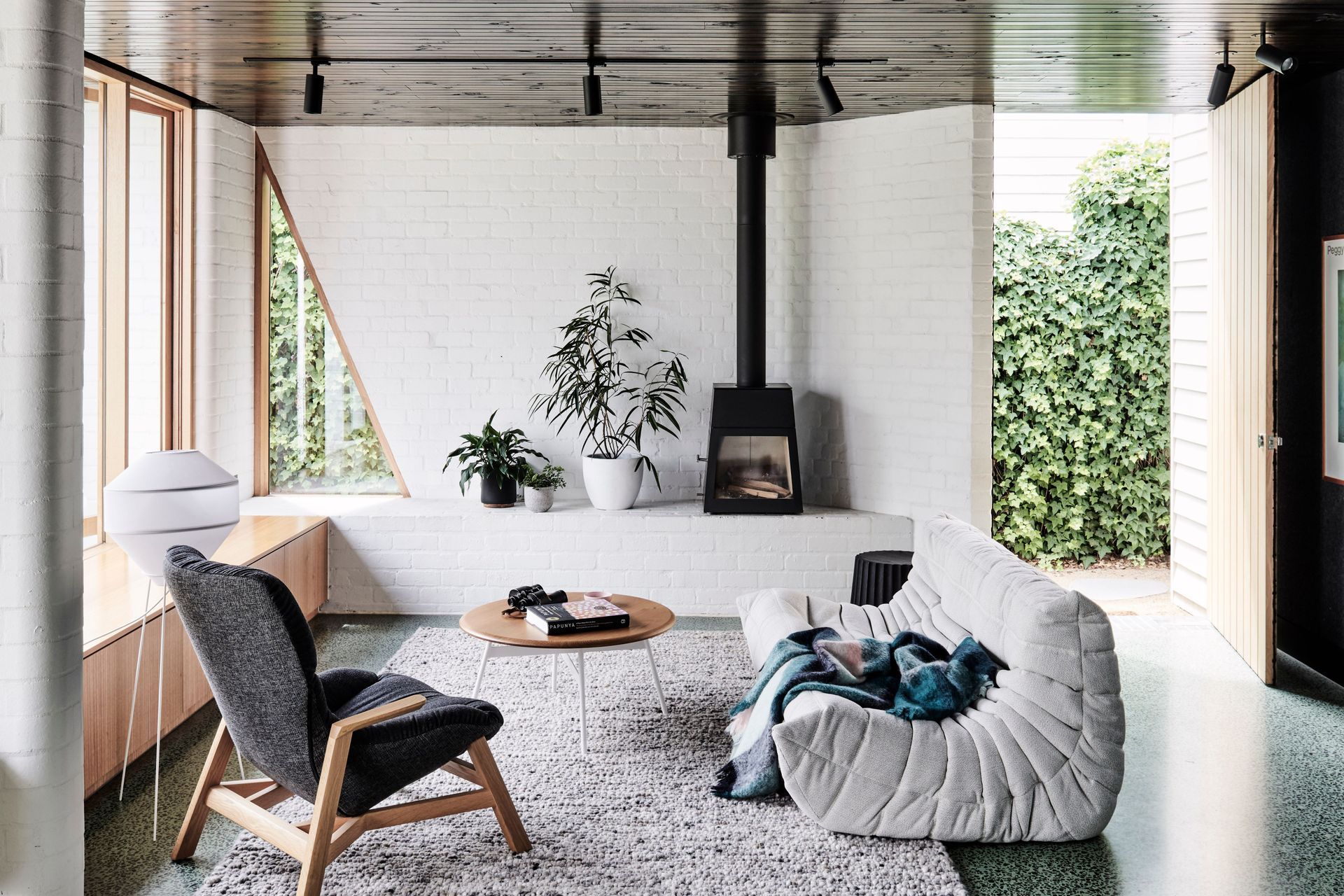
Brunswick West House by Taylor Knights
Proposing a savvy alternative to completely rearranging the preexisting configurations, Brunswick West House keeps to the original structure for bedrooms and adds a new section to form the heart of the home, designed for entertaining and socialising. A Californian bungalow home, the new extension continues to play into the laidback aesthetic with painted white brick walls, a black timber ceiling, and a flecked sage green concrete floor perfectly complementing the lush green surrounds.

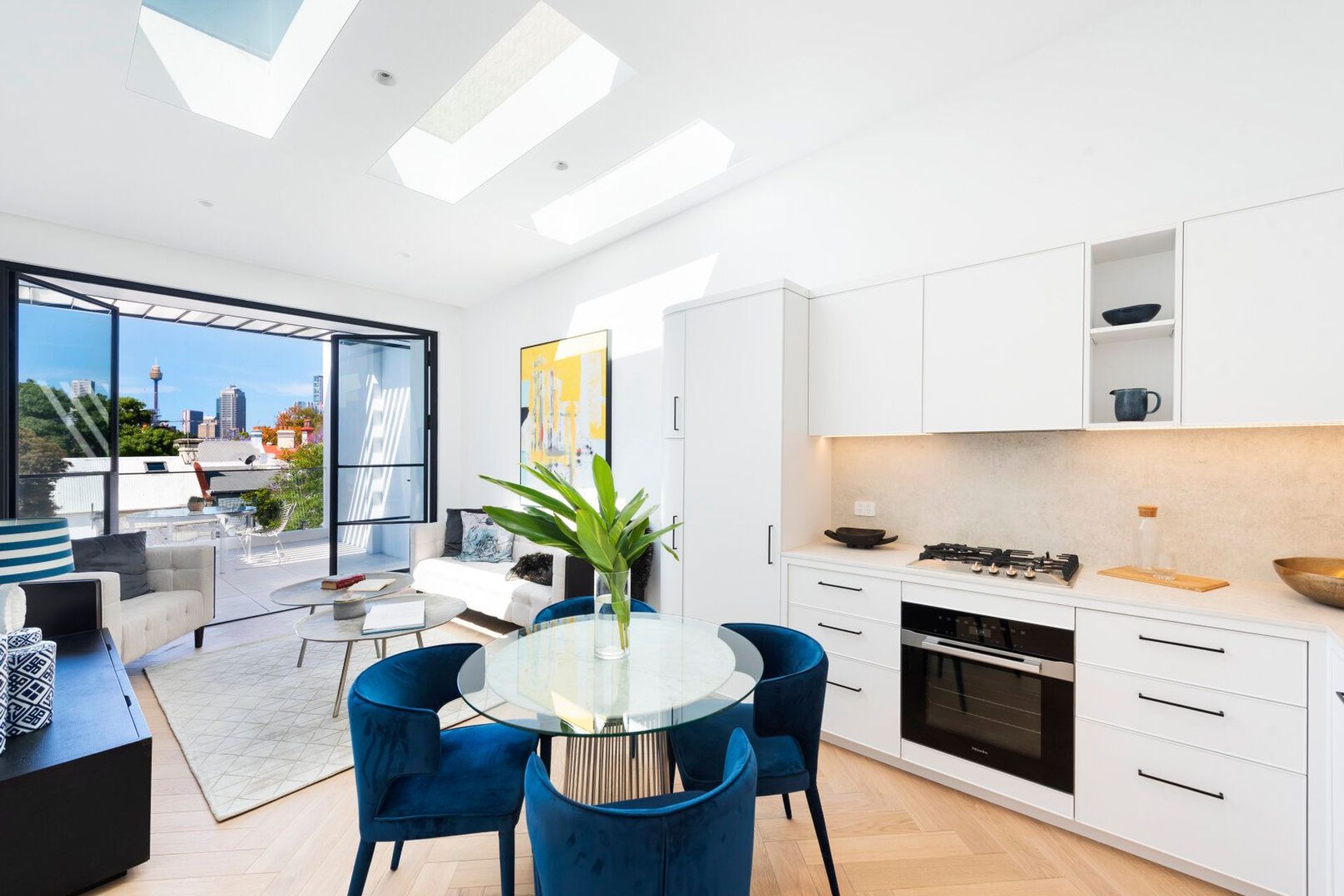
Glebe Heritage House by Cradle Design
Uniting two semi-detached heritage properties, Glebe Heritage House retains the classic old-world facades of each property while taking on a definitively contemporary tone inside. The bones of the house such as the carved mahogany staircase and decorative moulding remain, while the refined nature of the interior additions is befitting of the historically significant properties, albeit with a more comfortable, modern outlook.
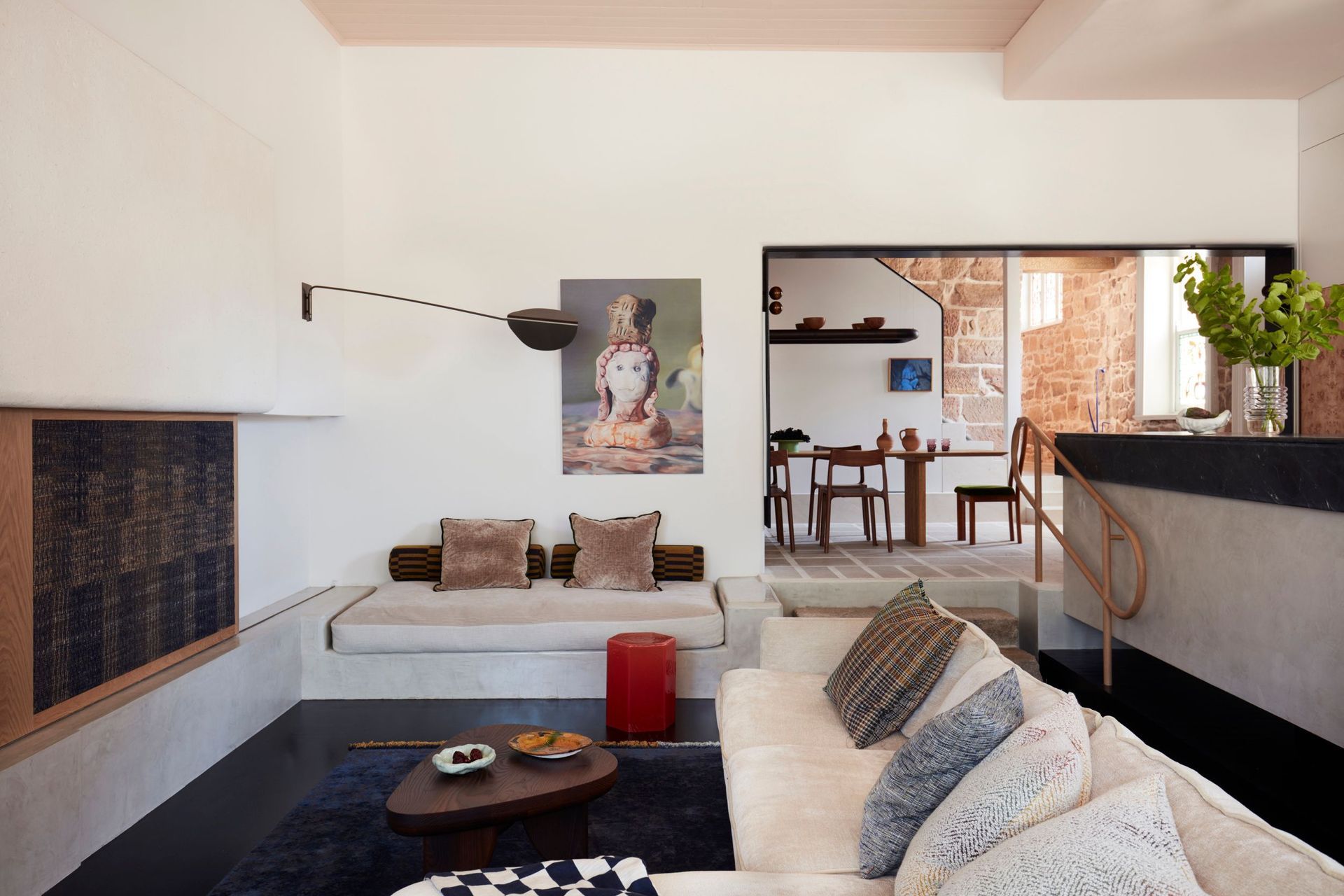

Soft Serve by YSG Studio
Proving renovations of historic buildings don’t necessarily have to be neutral to be respectful, Soft Serve takes a playful approach to convert a 19th-century heritage-listed former retail premises into a home. Working to peel back the layers of several updates and renovations over the past century or so, YSG Studio stripped the premises back to its original form before adding soft layers to provide a more welcoming, artisanal feeling. Restored sandstone speaks to the building’s history, with an earthy base palette working well with the sandstone while allowing for further experimentation with colour and texture via sofas, rugs, and other furnishings.


Hope House by DX Architects
Displaying a symbiotic relationship between old and new, Hope House uses a contemporary extension to contrast and highlight the preexisting semi-detached heritage house, with the former echoing the pitched roof style of the latter. The design retains the formal heritage front rooms while adding a casual, open-plan space at the rear, catering to modern living. Floor-to-ceiling windows combined with the open-plan arrangement and vertical landscaping contribute to connecting indoor and outdoor worlds, making for the ideal entertaining space.
Words by Tanisha Angel